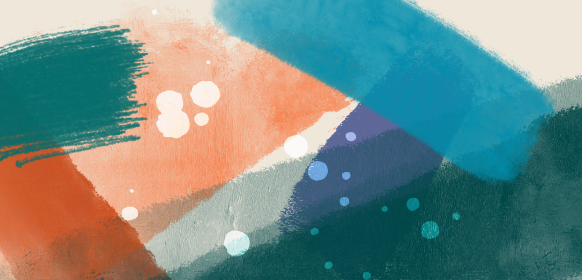An old man in Calcutta would walk to get water from a well every day. He'd carry a clay pot and lower it by hand slowly, all the way down, careful not to let it hit the sides of the well and break.
Once it was full, he'd raise the pot slowly and carefully again. It was a focused, time-consuming act.
One day, a traveler noticed the old man engaged in this difficult task. More experienced with mechanics, he showed the old man how to use a pulley system.
"This will allow the pot to go straight down quickly," the traveler explained, "then fill with water and come back up, without hitting the sides. It's much easier, and the pot will be just as full with much less work."
The old man looked at him and said, "I think I'm going to keep doing it the way I always have. I really have to think about each movement, and there's a great deal of care that goes into doing it right.
I'd imagine if I were to use the pulley, it would become easy and I might even start thinking about something else while doing it. If I put so little care and time into it, what might the water taste like?
It couldn't possibly taste as good.”
An excerpt from The Creative Act by Rick Rubin (bold emphasis added).
Last fall, I started using a new Customer Relationship Management (CRM) software that offered to integrate my email and calendar as part of the onboarding process. The pitch was that all my contacts and interactions (like meetings and emails) would be automatically imported into the tool with a single click. Better yet, new interactions would automatically be added going forward.
This sounded perfect.
Keeping up with people is difficult, and I struggle to do it well. Now, I could have all my relationships in one place, and every interaction with people would be automatically logged.
Managing relationships would be easy.
I happily gave them access, and the data started flowing in.
What do you think happened next?
I stopped logging into the CRM.
All my meetings were recorded, and emails were automatically added to the system. There was no work for me to do there. I had automated it away. I lost focus on the relationships I wanted to nurture.
I love automation and efficiency, but only in the proper context.
How would you feel if your significant other created an automated message to be sent to you every year on your birthday? Or if you discovered they were using AI to respond to your messages?
Not good, right?
What if, when you confronted them, they said, “But it’s more efficient!”
Someone will be packing their bags.
Almost all CRMs get this wrong. They emphasize efficiency, automation, and scalability without recognizing that these concepts are directly in conflict with building meaningful relationships.



We don’t want efficient friendships.
We don’t want scalable neighbors.
We don’t want automated colleagues.
Humans want to connect with HUMANS.
Here’s what most software leaders don’t understand:
Relationships are built on sacrifice.
People sacrifice their time, money, attention, and affection for the sake of someone else.
Relationships with people aren’t something to be managed; they need to be nurtured.
If you automate your interactions, you undermine the sacrifice and risk eroding the relationship.
Marketing that tries to persuade you that their tool will make relationships easier is trying to sell you something.
How could the water possibly taste as good?
Until next time,
Ted

.png)




